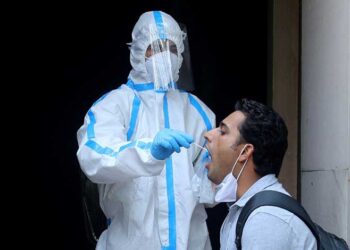Water-borne infections are widespread during the monsoon season. Dr. Rakesh Gupta, senior consultant in internal medicine at Indraprastha Apollo Hospitals in New Delhi, explains how to avoid them. “Water-borne diseases are more prevalent during the monsoon season due to increased contamination of water sources.” There are, however, a number of preventive practices that can help reduce the risk of getting these diseases.”
Safe drinking water: The first step is to secure a safe source of drinking water. It is best to consume boiled or filtered water. If neither of these choices is available, commercially packaged water can be utilized.
Personal hygiene: It is critical to maintain personal hygiene. Hands should be washed frequently with soap and clean water, particularly before touching or eating food or using the restroom.
Water storage: Keep water in clean, covered containers to keep insects, dirt, and other pollutants out. Clean and disinfect water storage vessels on a regular basis to keep the water safe.
Food safety: Be mindful of food hygiene practices. Avoid eating raw or uncooked foods, especially shellfish and vegetables that may have been washed in polluted water.
Avoid street food: While street food may be enticing, it is best to avoid it during the monsoon season. Water used for food preparation may not be safe, resulting in pollution and an increased risk of water-borne infections.
Skin ailments that can happen during monsoon
Certain skin diseases are more common during the monsoon season due to increased humidity, wetness, and exposure to water. Skin problems that can develop during this time include:
Fungal infections: The monsoon’s humid and wet temperatures provide a perfect setting for fungal growth. Ringworm, athlete’s foot, and fungal nail infections are common skin fungal illnesses.
Acne and breakouts: Excessive oil production on the skin can result in clogged pores and acne breakouts when humidity levels rise. Sweat, grime, and germs can aggravate existing acne or cause new breakouts.
Eczema and dermatitis: People who already have eczema or dermatitis may develop flare-ups during the monsoon season.
Prickly heat, often known as heat rash or miliaria, arises when sweat becomes trapped beneath the skin as a result of blocked sweat ducts. It causes tiny, itchy pimples and a prickling sensation on the skin, especially in sweaty places.
Tinea versicolor: A fungal infection that causes discolored patches of skin on the chest, back, and shoulders.
Foods to avoid in monsoon
It is best to avoid specific meals during the monsoon season to limit the risk of foodborne infections and maintain excellent health. During the monsoon, the following foods should be avoided or consumed with caution:
Leafy vegetables: Leafy greens such as spinach, cabbage, and lettuce are susceptible to infection during the monsoon due to increased moisture. Because they can harbor dirt, bacteria, and parasites, it is preferable to eat them after thorough washing and frying.
Street food: While chaat, pakoras, and samosas are all appealing, it is best to avoid them during the monsoon. The water used in their production may not be safe, and contamination is more likely.
Raw or cut fruits: Fruits that are consumed raw or cut, such as watermelon, muskmelon, and cucumber, should be well washed before consumption. Dirt and pathogens can pass through the outer skin.
Seafood, such as fish, prawns, and crabs, should be ingested with caution during the rainy season. In humid temperatures, fish and shellfish degrade quickly, raising the risk of food illness. Make certain that the seafood is fresh, thoroughly cooked, and obtained from reputable sources.
Dairy goods, such as milk, yogurt, and cheese, deteriorate quickly under high humidity. Before consuming dairy products, make sure they are fresh and of high quality. Consume dairy items that have been left out of the refrigerator for a lengthy amount of time.
Extra precautions we need in any manner
It is necessary to take extra care during the monsoon season to keep healthy and avoid numerous ailments. Here are some more steps to take:
Foot care: Keep your feet clean and dry during the monsoon season, as they are susceptible to fungal infections. To allow proper ventilation, use antifungal powders or creams, clean and dry socks, and open-toed footwear.
Mosquito protection: Mosquito-borne diseases such as dengue and malaria are more prevalent during the monsoon season. To avoid mosquito bites, use mosquito repellents, wear long-sleeved clothing, and sleep under bed nets.
Avoid walking in stagnant water: Avoid walking or wading in stagnant water because it may contain disease-causing bacteria, parasites, or sharp objects. Stagnant water is also a mosquito breeding site.
Adequate ventilation: Make sure your living quarters have adequate airflow to decrease moisture and prevent mold and fungal growth. Allow sunshine to penetrate the rooms by using exhaust fans and keeping windows open when possible.
Source:FE







 Finance
Finance







